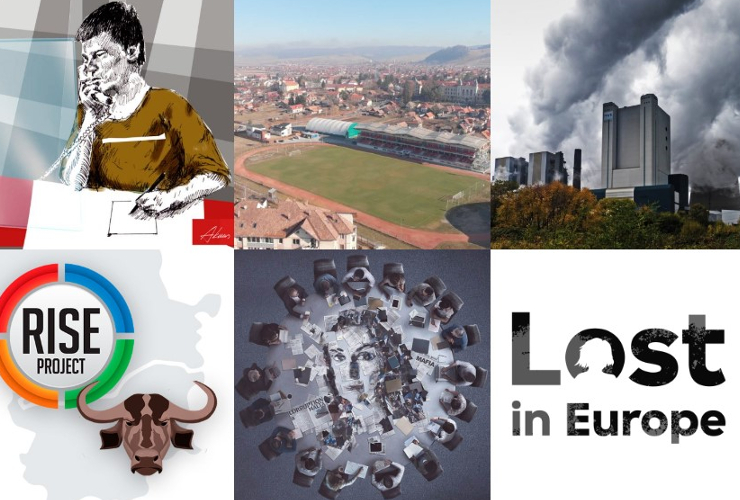Child abuse. Russian spying. Embezzlement of EU funding. Cancer tourism. Climate change denialism. European funding for dictators.
A wave of new investigative stories supported by the International Press Institute (IPI)’s IJ4EU fund have hit the news, underscoring the value of financial support for investigative journalism in the public interest.
Read below for some of the recent highlights.
[content_boxes settings_lvl=”child” layout=”clean-horizontal” columns=”1″ icon_align=”left” title_size=”18″ title_color=”” body_color=”” backgroundcolor=”#dcdadb” icon_circle=”” icon_circle_radius=”” iconcolor=”#dcdadb” circlecolor=”#dcdadb” circlebordercolor=”#dcdadb” circlebordersize=”” outercirclebordercolor=”” outercirclebordersize=”” icon_size=”” icon_hover_type=”” hover_accent_color=”” link_type=”” link_area=”” link_target=”” animation_delay=”” animation_offset=”” animation_type=”0″ animation_direction=”down” animation_speed=”0.1″ margin_top=”0″ margin_bottom=”0″ class=”” id=””][content_box title=”” icon=”” backgroundcolor=”#dcdadb” iconcolor=”#000000″ circlecolor=”#dcdadb” circlebordercolor=”” circlebordersize=”” outercirclebordercolor=”” outercirclebordersize=”” iconrotate=”” iconspin=”no” image=”” image_width=”35″ image_height=”35″ link=”” linktext=”” link_target=”_self” animation_type=”0″ animation_direction=”down” animation_speed=”0.1″]
The IJ4EU Fund:
Supporting cross-border investigative journalism in Europe.
The IJ4EU (Investigative Journalism for Europe) fund was launched in 2018 to encourage journalistic investigations that cross European borders. In June, an independent jury led by Süddeutsche Zeitung Editor-in-Chief Wolfgang Krach awarded €315,000 to 12 projects. The fund is backed by the European Commission via the European Centre for Press and Media Freedom (ECPMF) and managed by IPI, a global network of editors, media executives and leading journalists for press freedom.
Visit the fund’s website to learn more about the ongoing investigations and stories published so far in leading European media, including The Guardian, Süddeutsche Zeitung, Il Fatto Quotidiano, Mediapart, La Repubblica, Die Zeit and more.
[/content_box][/content_boxes]
Russian spying in the EU
Led by the Riga, Latvia-based Baltic Center for Investigative Journalism (Re:Baltica), a team of journalists from five countries examined intelligence methods being employed by Russia in the Baltics and Central and Eastern Europe.
“With the Baltics’ being next to the Russian border, we are usually the testing ground for many methods”, Sanita Jemberga, executive director and editor at Re:Baltica, told the International Press Institute (IPI) during a recent interview in Vienna. “From our experience, it starts with us, goes to the Visegrád region and then to western Europe.”
I’m really, really proud of our project.
“In a five-country series, a team of investigative journalists led by @rebaltica has explored the spying methods Russia is deploying against the NATO allies.” With @direkt36, @postimees, @RESPEKT_CZ & @15minlt.https://t.co/3BBl9gzSMj pic.twitter.com/zahr5CEqAj
— Szabolcs Panyi (@panyiszabolcs) January 8, 2019
The stories have been published in various news outlets in Latvia, Lithuania, Estonia, Hungary and the Czech Republic, and include the first interviews with individuals convicted for spying for Russia in the Baltics after the annexation of Crimea in 2014.
Read more about the “I Spy” investigation
Is the EU providing border surveillance to Belarus in violation of sanctions?
That was the key question underlying a new report published by the Danish investigative platform Danwatch and the leading Danish newspaper Politiken in December. According to the report, the EU is funding video surveillance cameras, communication equipment, patrol vehicles and seismic sensors worth two million euros for the benefit of Belarus’s border guards. In collaboration with Belarusian journalists, the reporting team documented accusations of human rights violations by the border force, including as regards Belarusian opposition activists.
Med den ene hånd sanktionerer EU Hviderusland. Med den anden hånd giver EU Hvideruslands grænsevagter udstyr for over 16 millioner kroner. Det er med til at holde asylansøgere væk fra EU’s grænser. @politiken og @DanWatchDK.https://t.co/p4uVzIZ7Gi
— Perry MacLeod Jensen (@perrymacleodjen) December 26, 2018
Experts say the findings revealed by the investigation suggest that the EU may be violating the terms of its own sanctions on Belarus, which bar the export of equipment that may be used for internal repression.
Greek child protection services is failing
In one case, authorities returned a little girl, a victim of confirmed abuse, back to her family without a visit by social workers. In another, authorities, alerted to ongoing child abuse by a local basketball coach, allowed the abuse to continue for a year while they organized a “sting operation” to ensure the coach’s conviction.
Here is an article just published in @AJEnglish, based on our investigation: “Greece child protection services ‘disjointed and inadequate'” https://t.co/Qe7JyRL9YC #IJ4EU
— The Manifold (@The_Manifold) December 31, 2018
In December, a team of Greek and Cypriot journalists launched the results of a month-long investigation into the failures of child services in both countries. What emerged from a thorough mapping of the maze of services involved with child protection, a study of the legal framework, and a collection of testimonies from experts, policymakers and survivors was a pattern of mismanagement, serious negligence and structural deficiencies. Journalists say the results highlighted abusive children’s institutions, a lack of training, harsh treatment by judicial authorities and the police, and inadequate and disorganized social services as some of the problems bearing heavily on abused children.
Read more about the “Failed Child Services in Greece and Cyprus” investigation
More from IJ4EU:
Why is Hungary funding football clubs and football stadiums in neighbouring countries?
Who is behind the networks of climate change denialists in Europe?
